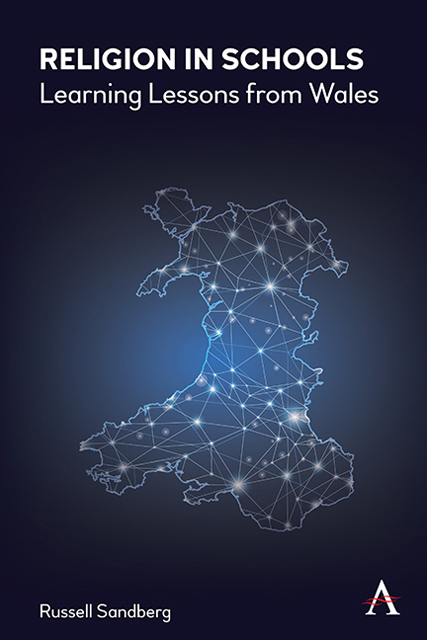10 - The Passage Of The Bill
Published online by Cambridge University Press: 09 December 2022
Summary
As with all other Bills considered by the Welsh Senedd, the Curriculum and Assessment (Wales) Bill went through four stages. The first is the committee consideration of general principles followed by a plenary debate on general principles. The second is the committee consideration of amendments. The third is the plenary consideration of amendments. The fourth is the passing of the Bill in plenary, followed by Royal Assent unless the Bill is referred to the Supreme Court. This chapter explores the journey of the RVE provisions in the Bill through these four stages. The Curriculum and Assessment (Wales) Bill as a whole enjoyed a relatively smooth passage through the Senedd, led by Kirsty Williams who weathered a number of objections and concerns about aspects of the Bill including notably its provisions on RVE.
Stage 1
Stage 1 of the Bill's passage through the Senedd began on 9th June 2020 and comprised of the consideration of the Bill's general principles by the Children, Young People and Education Committee. They laid their Report on the Bill on 4 December 2020, which supported the change in name of RVE and the removal of the parental right to withdraw, noting that ECHR rights will not be breached if ‘in all schools parents can elect for their child to receive objective, critical and pluralistic RVE provision’. It concluded that there were sufficient safeguards in place to ensure this. The report recommended that there was a need to explore whether there should be consistency in language about how all schools take into account the agreed syllabus and whether there should be a right for learners of sufficient maturity to choose the RVE provision they receive where a choice exists. A letter from the minister accepted the first point but in relation to the second point stated that under the Bill up until the age of 16 then the parents would make the choice, while post 16 the choice to continue being taught RVE would rest with the pupil. There were three particular points of controversy, however, where the report cited my written evidence and made recommendations to the Welsh Government:
The two syllabus solution for schools with a religious character
The first concern was related to teaching RVE in schools with a religious character, where the Report discussed the concerns about there being more than one syllabus in schools with a religious character.
- Type
- Chapter
- Information
- Religion in SchoolsLearning Lessons from Wales, pp. 83 - 92Publisher: Anthem PressPrint publication year: 2022



